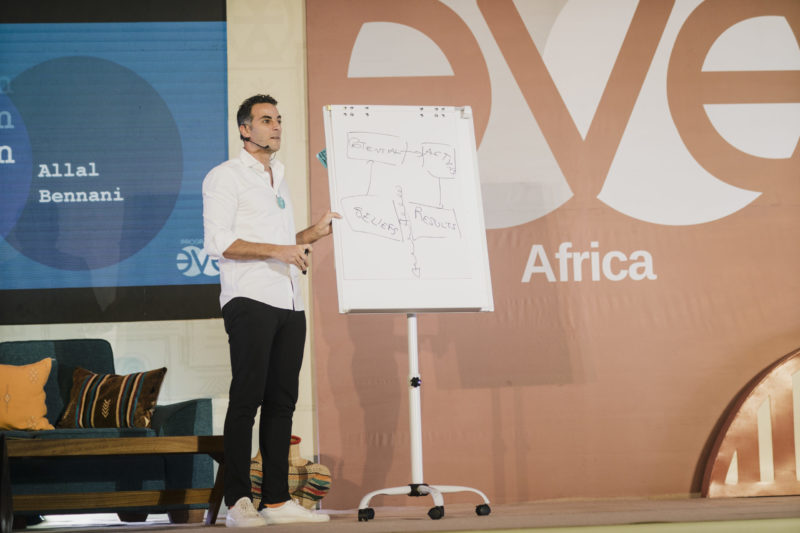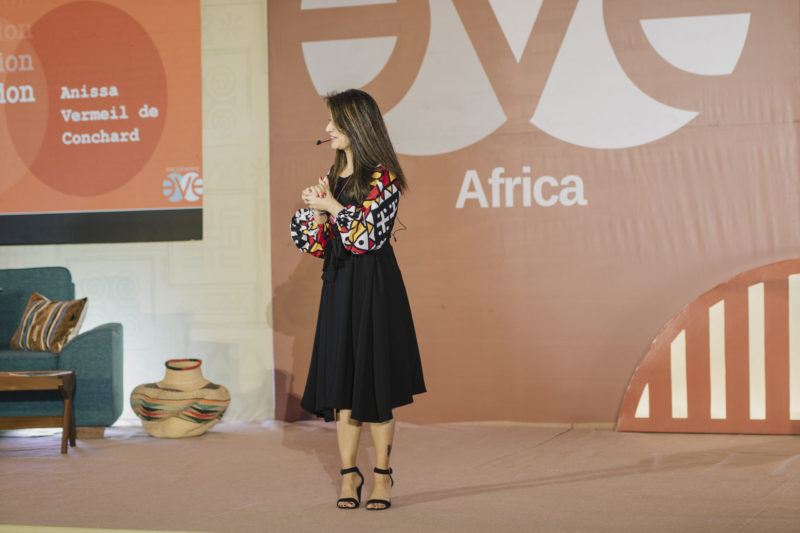In the fields of personal development and balanced management, anchoring has become a strong trending topic, so could it be one of the vital soft skills for tomorrow’s world? Derived from the Latin word ancora, which simply means “anchor”, the concept of anchoring is about encouraging managers to really take the plunge and guarantee a firm grounding in the unpredictable waters of today’s business world.
The EVE webmagazine wanted to find out more about this ability to establish a position and stick to a solid and sustainable course… which means being clear and reliable, but in some cases perhaps narrow-minded too.
Internal anchor: an essential privilege
In its figurative sense, anchoring covers two ideas: the first is about personal development and the inner self. It’s about being “rooted” in your environment; knowing where “home” is, to put it more simply. When we have a connection with our inner selves, our values, and everything else that shapes our identity, we benefit from an internal stability that makes our external interactions reassuringly consistent. We enjoy a state of peaceful awareness, a confidence about our place in the world.
When we have no anchoring, we feel lost at sea. If we aren’t aware of what’s going on in our own mind, we experience low self-confidence, and it shows: we might find it difficult to see projects through to completion and/or interact positively with others.
There are several ways to stabilize that internal anchor: meditation, yoga, mindfulness, artistic expression, and exercise have all been proven to help calm mental activity and improve physical awareness, to encourage us to really inhabit the present moment. Various forms of personal guidance are also available, such as coaching, which can help to establish an internal anchor.
External anchoring: a source of decision-making biases
The other idea about anchoring is the difficulty we experience when we try to set aside an initial judgment. This external anchorage derives from a type of cognitive bias generated by the mental, rapid, intuitive and automatic shortcuts we use to solve problems in our heads.
As interpreting or solving a problem depends more on our own personal frame of reference than on reality – which is in actual fact far too complex to understand fully – this anchoring bias leads to errors. Our stereotypes can anchor us unconsciously, which can make us self-censor and/or discriminate, even when we don’t intend to do so. In a social context, external anchoring is also an extremely powerful influencing tool.
External anchoring, the invisible influence on our thoughts and decisions
The anchoring effect is even more powerful when we don’t have useful information to hand, because, in the words of management sciences professor Jacques Rojot, “Anchoring is based on the information available.” So “any figure can seem reasonable if we are totally uncertain of an object’s value.” The same goes for any argument that appears to be presented by someone with authority. In other words, its value depends more on the legitimacy attributed to the person who suggests the argument than on its actual content. A scientist with diplomas and prestigious awards all over their walls is considered credible even if he or she is talking about a subject outside their area of expertise. We listen more carefully to people who hold high status in society (if they managed to earn that role, they must have deserved it, right?), and allow ourselves be influenced by those with stellar reputations or people who are blessed with the gift of the gab (even to the point of being carried away by rabble rousers!).
Look at what I’m showing you and I’ll tell you what you think
To understand how external anchoring influences us, let’s take an experiment carried out by Amos Tversky and Daniel Kahneman. Two groups of people were asked to estimate the percentage of UN member states in the continent of Africa, information that no-one was likely to know for sure. Before answering, the groups were asked to spin a roulette wheel. The wheel was rigged to the number 65 for the first group, while for the second group the wheel was rigged to the number 10. The pull of the anchor: on average, the first group replied that 45% of African countries were also members of the UN, while the second group’s average estimation was 25%!
Perhaps the anchoring effect can be explained more simply using the famous “what do cows drink?” test. Ask a person to tell you the color of the (white) cup in front of them, a sheet of paper (white), a shirt (white) of a colleague, snow, yoghurt, paper towel, etc. Then ask the key question: what do cows drink? Most people who have never done the test simply say “milk”! But until proven otherwise cows actually drink water.
Setting the course for internal anchoring without getting lost at sea
The big question about anchoring is its ambiguity: how can you find internal stability without being overly rigid? How can you open up externally without being polluted by unconscious biases? If you are to achieve balanced and conscious anchoring, it’s worth taking a few precautions, especially in social interactions.
In any context, it is useful to minimize external anchoring and work on developing internal anchoring and self-awareness. Some factors can encourage anchoring, such as mood. For example, Birte Englich and Kirsten Soder explain in an article published in Judgment and Decision Making magazine that sad people can be “anchored” more easily than people in a neutral or happy state. Individual personalities also have a significant influence: according to another study by Cuneyt Eroglu and Keely Croxton, conscientious, lenient and outgoing people tend to be more influenced by the anchor effect, as well as those who are very open to new experiences, according to a research article by Todd McElroy and Keith Dowd. If we’re aware of how likely we are to be influenced by anchoring, we can develop some resistance to it and neutralize the mechanism when needed.
Lastly, let’s not lose sleep over this: everyone is influenced in one way or another, but we can also have a positive impact on our environment. All that remains is for us to dare to speak out against preconceived ideas and take action to change the rules of the game.
Valentine Poisson & Marie Donzel, for the EVE webmagazine.
Translated from French by Ruth Simpson.






